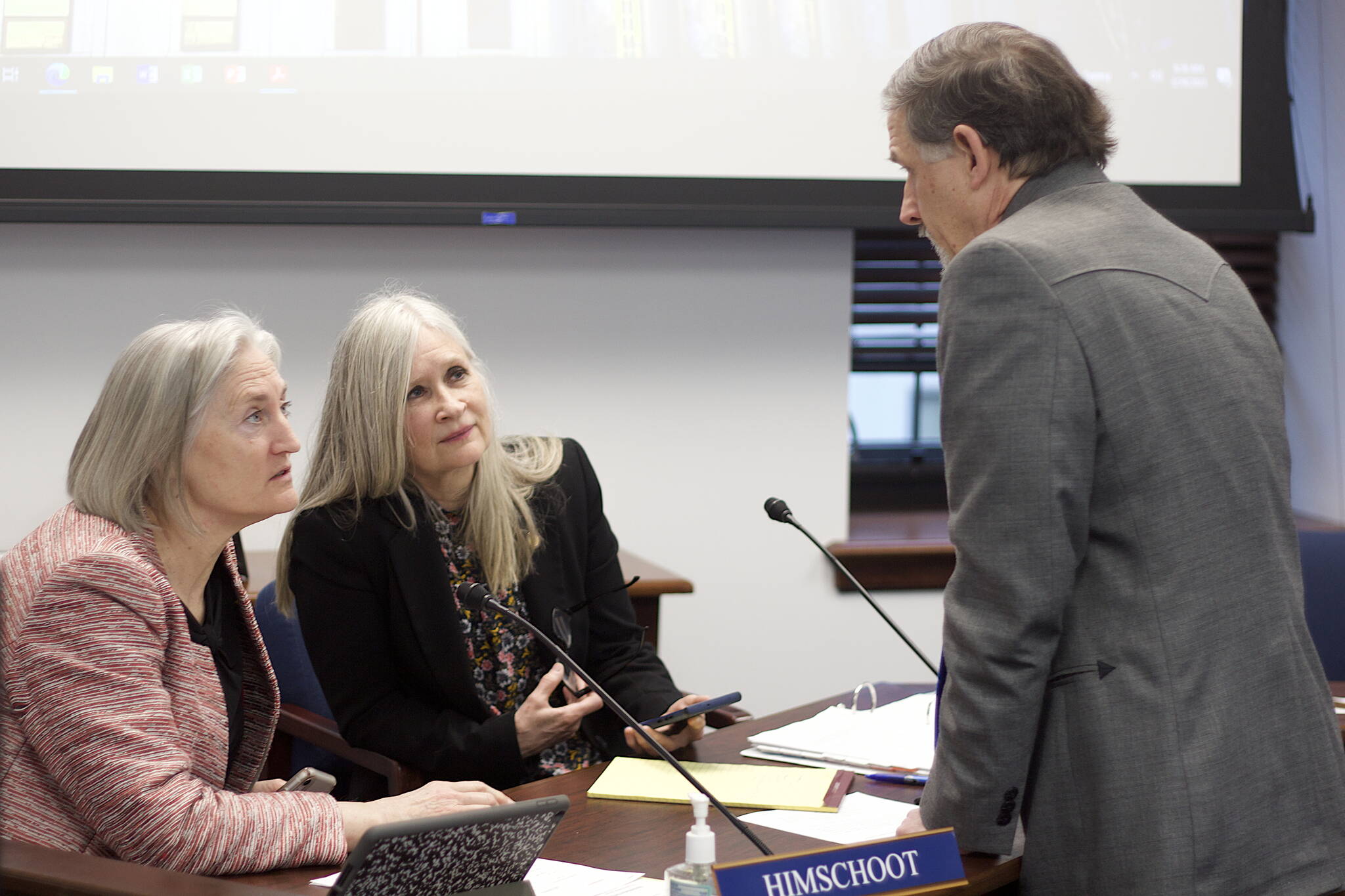A proposal requiring school districts to maintain an “online checkbook” accessible to the public got support from some conservative policymakers Wednesday, but concerns were expressed by Southeast Alaska legislators and educators about cybersecurity and small remote districts that don’t have websites.
House Bill 71 is intended to improve public accountability by requiring districts to post details about funds received and spent by each school on a public website, said Rep. George Rauscher, a Sutton Republican sponsoring the bill. The Matanuska-Susitna Borough he represents is a statewide focal point for numerous conservative educational policy efforts, including a pending virtual checkbook such as the one he is seeking for all districts.
“The public would like to understand first off where the money is spent so they can ask the right questions,” he told the House Education Committee during the bill’s first hearing Wednesday. “If the money is spent for a trip somewhere, if the money is spent for just, say, a bonus for maybe the administration, or the money is spent toward a check each month for a superintendent they at least have an understanding of where that money is going.”
Rep. Justin Ruffridge, a Soldotna Republican who co-chairs the committee, said many districts already post financial information online and asked if Rauscher has specific examples of people being unable to get information sought. Rauscher, acknowledging, “I don’t really have exact examples,” cited hypothetical instances such as school officials taking trips to Hawaii or Oregon that residents might be interested in scrutinizing.
That prompted some skepticism about the practicality of the virtual checkbook from Ruffridge.
“Using it to essentially look for whether or not a superintendent is taking trips to Hawaii on the state’s dime, I’m not entirely certain that would be a valid use for the checkbook in an accountability fashion,” he said. “I’m not sure that’s happening.”
Another question was raised by Rep. Rebecca Himschoot, a Sitka independent, who noted remote single-site districts such as Pelican and Hydaburg don’t have official websites.
“Have you checked with any of the districts where this would be a financial burden?” she asked.
“I would not know how to do that,” Rauscher replied. “I don’t know which of the 54 (districts) where it would be a burden.”
Support for the bill was voiced by a couple of the committee members including Rep. Tom McKay, an Anchorage Republican.
“At a time when we’re asking Alaskans to give up a significant portion of their lawfully owned Permanent Fund dividend, and a big piece of that could possibly go to support a (per-student funding) increase for every district in the state, it seems only reasonable to me people should be able to see where that money is going, in detail, without a lot of hassle to get it,” he said.
Also testifying in favor of the bill during the hearing was Sarah Montalbano of the Alaska Policy Forum, a conservative group that has supported cuts to public school funding and allowing parents to use such funds to send their kids to private schools. She said the requirements “don’t have to be burdensome to districts,” but should include details commonly found in individual checkbooks.
“Districts should list all revenues, and list expenditure transactions by check number, payee or vendor name, memo, amount and account code,” she said. “Districts should also provide the chart of accounts used to code transactions. The statue should specify the frequency of updates to the checkbook and how long the data must remain online.”
Several concerns about the bill were expressed by Cassee Olin, director of administrative services for the Juneau School District. She said the cost is of particular concern for smaller districts that may have a single employee responsible for all financial duties and thus subject to an unreasonable workload, along with the further complication for districts without a website.
Furthermore, she said the Juneau district and others are constantly subject to cyber attacks by parties posing as contracted vendors, so providing detailed information about transactions could aid illicit efforts. The school district was scammed out of nearly $270,000 in October 2022 by someone posing as a vendor.
Also, the district is required to comply with government requirements such as access for disabled users, and it’s unclear how that could be properly and securely provided with the requirements in Rauscher’s bill.
“There’s not a lot of information in how it would be set up for school districts,” Olin said.
The bill is pending further action by the Education Committee, the only one assigned to consider it before a floor vote.
• Contact reporter Mark Sabbatini at mark.sabbatini@juneauempire.com

